Who doesn’t love going on vacation? But when planning a trip, the thought of expenses always puts a damper on the excitement.
Traveling can and should be affordable for every kind of traveler. You just need to be smart about it. We are going to tell you how to be a smart traveler that saves money without sacrificing the experience. From packing light to using free communication apps, we will give you 13 proven tips to travel on a budget.
These tips and tricks will help you travel smarter and make your hard-earned money stretch further on your next trip, no matter where you’re headed. So get ready to plan that perfect trip without breaking the bank.
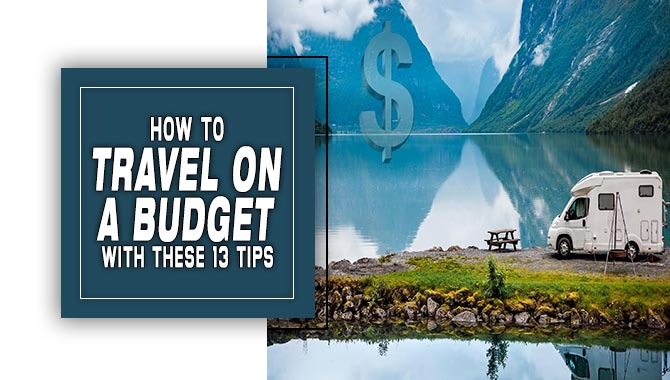
13 Proven Tips For Traveling On A Budget
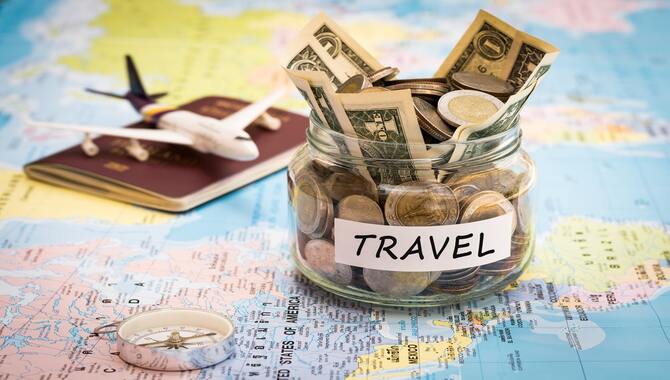
Research your destination to find the cheapest flights and accommodations. Try to travel during the off-season or shoulder season for lower prices. Consider taking a night bus or train to save on travel costs. During your travels, look for ways to cut costs on food and transportation. Additionally, taking a road trip could be a budget-friendly way to travel.
To save more money, look for discounts, coupons, and loyalty programs. You can also use travel credit cards to earn discounts and rewards. Lastly, don’t forget to set a budget and stick to it. With these tips, you can have a fulfilling and affordable trip without breaking the bank.
Traveling on a budget does not mean skimping on experiences. With a little planning, you can plan the perfect trip while staying within your budget. Here are 13 tips to help you travel on a budget:
1. Be Flexible

Traveling on a budget doesn’t mean sacrificing comfort or enjoyment. Being flexible is key, whether it’s being flexible with your flight logistics or being open to new forms of accommodation, transportation, and food. Being open to new experiences and options lets you plan a cheap trip that meets your travel goals.
One of the biggest cost-saving measures when traveling is flexibility with your flight logistics. You can save hundreds of dollars by flying from a less expensive airport or into a different hub and then taking a separate flight to your destination. Another tip is to make your meals and pack a picnic to save money on eating out.
And by focusing on being flexible with your dates and destinations, you can save even more money. With these tips and creativity, anyone can plan a budget-friendly travel adventure.
2. Pack Light
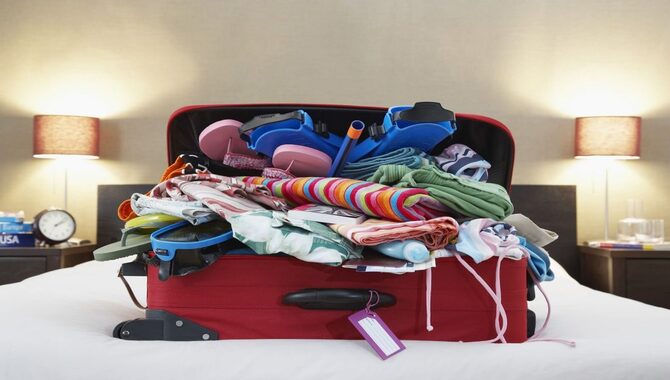
One of the keys to traveling on a budget is packing light. It’s important only to pack the essentials to save money while traveling. Transporting excess luggage can result in paying extra fees, so it’s important to pack only what you need.
When packing, don’t forget to take all the necessary items to avoid buying them abroad, which can be a waste of money. Additionally, packing light makes moving around easier and more pleasant, as you won’t have to carry heavy bags. Before heading to the airport, check the airline’s terms and conditions, as additional charges may apply for luggage exceeding a certain weight limit.
3. Opt For Airbnb Over A Hotel.

One of the best ways to travel on a budget is by choosing Airbnb over a hotel. Airbnb offers a wide selection of unique accommodation options, such as flats, villas, boats, and castles, that can make your travel experience more enjoyable and memorable.
Also, Airbnb is often cheaper than staying in a hotel, especially when traveling with a group or family. To get the best deal, use metasearch engines to compare prices and find the right accommodation for your budget. Additionally, check reviews and contact the host to ask any questions or get additional information about the property before booking.
4. Check Out A Hostel
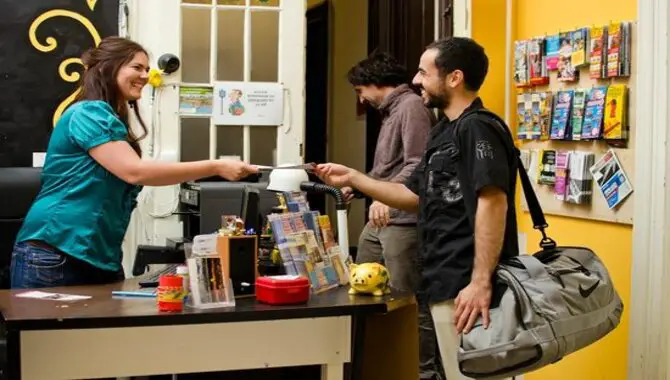
One of the best ways to travel on a budget is by staying in hostels. Hostels offer affordable accommodations and many other benefits, such as:
Discounts for members of hostel associations, such as Hostelling International (H.I.)
Special deals for students, young professionals, and families
Private rooms that can be booked as singles or doubles
Comfortable and centrally located accommodations
Staying in a hostel can be a great way to save money on travel expenses and meet other travelers. They are typically clean and safe and provide a unique experience that cannot be found in traditional hotels. So if you are planning a budget-friendly trip, be sure to check out hostels as an option for your next adventure.
5. Eat Like A Local

r seeking local grocery stores or supermarkets to buy ingredients and make your meals. Dining aestablist casual restTraveling on a budget can be challenging, but there are many ways to save money without sacrificing the quality of your experience.
One tip to consider is eating like a local. This can involve bringing your meals to tourist attractions to save money oaurants or local hments can also be a money-saving option compared to fancy ones. Before you go, you can research local restaurant discounts and special offers and watch for street food vendors for a quick, affordable meal.
6. Do Free Activities

There are several proven tips if you’re looking to travel on a budget. One of the best ways to cut costs is to participate in free activities. This can include volunteering abroad for free lodging and meals and taking advantage of nature with activities such as hiking, biking, fishing, swimming, kayaking, and paddle boarding.
In addition to free activities, there are other ways to save money while traveling. These include using discounts when booking flights and accommodations, taking public transportation instead of taxis, and bringing your food or cooking meals instead of eating out. It’s also important to bring cash and insurance and to organize your tours to reduce expenses further.
7. Get A City Pass

Traveling on a budget does not have to be difficult. There are several proven tips you can follow to help you save money and make the most out of your trip. One of those tips is to invest in a city pass. These passes offer discounts on popular attractions and activities and access to public transportation, making it a budget-friendly option.
Another cost-saving tip when traveling is to research the public transportation options available in your destination. This can help you avoid spending a lot of money on transportation, especially if you plan on using it frequently during your trip.
You can also save money on food by packing a picnic lunch or making meals while traveling. Finally, consider staying in vacation rentals to minimize financial costs and maximize the time spent exploring the city. Following these tips allows you to travel on a budget without compromising your travel experience.
8. Use Free Apps For Communication
One of the ways to save money while traveling is to use free apps for communication. For example, the Voot Fly app can help you connect to flights in the U.S. at a cheaper rate. Another option is to utilize online communities such as World packers to exchange work for meals and lodging. You can also use budget planning apps such as Trail Wallet to track expenses and currency exchange apps like XE Currency to track exchange rates. Lastly, purchasing a Korail Pass for unlimited travel by train at a discounted price can help you save a lot of money.
9. Start A Travel Fund
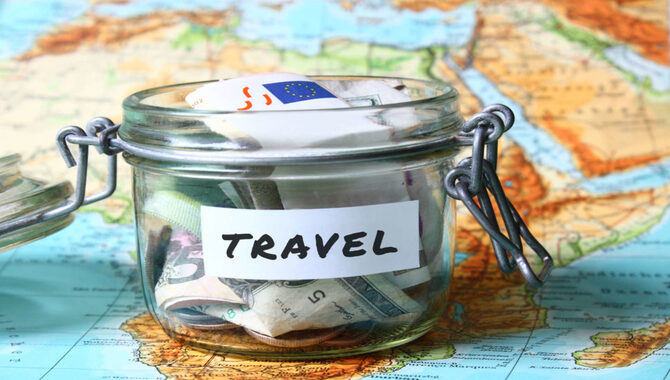
If you’re looking for ways to travel on a budget, there are several tips and tricks that you can use to make your adventure more affordable. One of the easiest and most effective ways to save money on your trip is to start a travel fund. By setting aside a budgeted amount each month, you can better prepare for the costs of your trip and avoid having to dip into your savings to cover unexpected expenses.
It’s important to be realistic about what you can afford to spend and stick to your plans. Create a packing list and consider the items needed for specific activities. When packing, less is often more – avoid bringing unnecessary items.
10. Avoid Atm & International Transaction Fees

If you want to travel on a budget, several proven tips can help you save money. One important tip is to avoid ATM and international transaction fees. This can be done by making one large deposit instead of multiple smaller ones and by withdrawing the maximum allowed amount from ATMs.
In addition to these money-saving strategies, there are other ways to cut costs while traveling. Look for discounts on accommodations, attractions, and activities, use public transport tickets instead of taxis, and bring your food to avoid costly restaurant meals. It’s also wise to bring along cash in case of emergencies and don’t forget to purchase travel insurance to protect yourself and your belongings.
11. Join Facebook Groups

If you’re looking to travel on a budget, joining Facebook Groups related to travel is a great place to start. These groups are filled with valuable information and recommendations from fellow travelers. Ask for recommendations from locals for good food, drink, and activities, and browse lists, travel tips, and inspiration related to budget travel.
Consider using public transport and creating DIY adventures to save money on transportation and activities. Theme parks, national parks, and other attractions can also be great options for budget-friendly entertainment.
12. Travel In The Off Season Or Shoulder Season
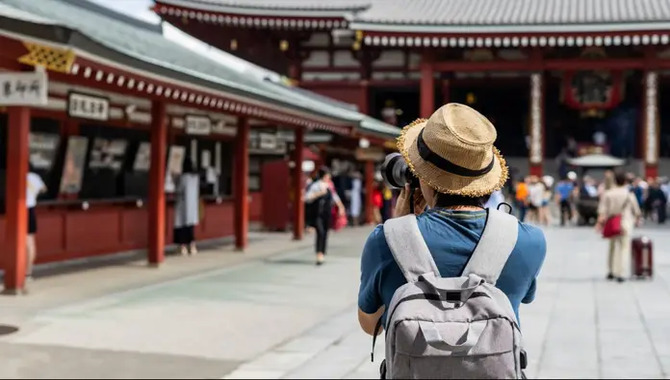
Traveling on a budget can be challenging, but there are some proven tips and tricks to make it more affordable. One of the best ways to save money is by traveling during the off-season or shoulder season. This is when prices are lower, and there are fewer crowds, making finding deals on accommodations and activities easier.
In addition to timing your travels strategically, some basic tips can help you save money on the road. These include packing light, planning, and using public transportation. For budget-conscious travelers, there are also some specific strategies to consider. These include finding cheap airfare, staying in hostels or budget accommodations, and using online travel platforms to compare prices and find deals.
13. Don’t Knock Budget Airlines
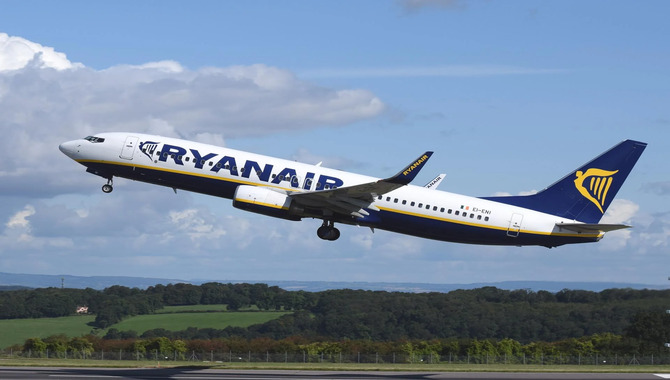
If you want to travel on a budget, flying with budget airlines can be a great way to save money. Spirit Airlines, for example, is rated the most on-time airline in the U.S. Other budget airlines to consider include Norwegian, Frontier, Air Asia, and Ryan Air. Additionally, watch for error rates on flights found on websites such as Scott’s Cheap Flights, Airfare Watchdog, Secret Flying,
The Flight Deal, and Holiday Pirates. Packing lightly is also important when flying budget airlines, as you may be charged extra for checked bags. By following these budget travel tips, you can save money and still have an enjoyable travel experience.
Conclusion
You know you do not have to break the bank to enjoy traveling. Traveling on a budget can be challenging, but following the above tips can help save you money and make your travel experience more enjoyable.
Remember to prioritize your travel goals and be flexible with your itinerary, mode of transportation, and accommodation. Researching and booking in advance can also help in securing good deals. So, what are you waiting for? Pack your bags, and start planning your next budget-friendly adventure.
Frequently Asked Questions
Is There Any Way To Get Free Travel With These Tips?
Unfortunately, there are no guaranteed ways to get completely free travel. However, there are ways to reduce travel expenses significantly. These include signing up for airline and hotel loyalty programs, utilizing credit card rewards and promotions, being flexible with travel dates, and looking for deals and discounts online.
What Are Some Affordable Transportation Options For Budget Travel?
There are several affordable transportation options for budget travel, including:
– Taking buses or trains instead of flying, as they can be cheaper and offer scenic views.
– Using rideshare services like Uber or Lyft may be more cost effective than traditional taxis.
– Renting a bike or using a bike-sharing service to explore your destination.
How Can I Save Money On Accommodations While Traveling?
There are several ways to save money on accommodations when traveling. Consider staying in budget-friendly hotels, hostels, or Airbnbs. Travel during off-peak seasons to take advantage of lower rates. You can also sign up for hotel rewards programs or use travel credit cards to earn points and discounts.
Are There Any Websites Or Resources That Help With Budget Travel Planning?
Yes, many websites and resources are available to help with budget travel planning. Some popular options include budget airlines like Skyscanner and Ryanair, travel deal websites like Expedia and Kayak, and budget accommodation options like Hostelworld and Airbnb.
What Are Some Budget-Friendly Activities Or Attractions To Explore While Traveling?
When traveling on a budget, many affordable activities and attractions exist. Consider visiting local museums or galleries, going on a walking or hiking tour of the area, or checking out free or discounted events like outdoor concerts or festivals.



